Film
My Favorite New Movies of 2012
Here’s a roundup of my favorite newish movies, with some thoughts on each one. If you appreciate and/or doubt my taste in motion pictures, here are my lists from 2009 & 2010 & 2011. And here are some overall notes:
- Films marked with an * can be watched for free online; just click on the title.
- Roughly half of the films are from 2012; the rest hail from 2008–11. As I argued in my posts “How Many Movies Are There?” and “How Many Movies Have You Seen?“, no one can watch every new release when it comes out (especially when they’ve recently started a PhD program). I prefer to think of my lists 2009–present more as an ongoing project than as definitive statements on any given year. (I also feel free to revise my opinions over time.)
- You may find relevant two older posts—“How Many Cinemas Are There?” & “Why Do You Need So Many Cinemas?“—where I decry the habit of so many film critics to consider only feature-length theatrically-released films when making these kinds of lists. (All other cinema somehow disappears at the end of the year! Which is particularly odd at the present moment, when broadband has been revitalizing the short movie form.)
- If you want straight lists of the titles without any commentary, just skip to the end.
And now, without further to do, here are 30+ relatively-new movie-things that I saw and have thoughts on, starting with—
I. MY 10 FAVORITE NEWISH FILMS THAT I SAW THIS YEAR AND FEEL COMFORTABLE RECOMMENDING THAT OTHERS CHECK OUT
1. Chronicle (2012, Josh Trank, 84 min)
The formula’s at least 50 years old: bickering teens gain superpowers and fall victim not to villains, but to themselves—but the presentation feels fresh. Chronicle is a better Marvel adaptation than anything Marvel has managed so far. No surprise that Josh Trank has since been tapped to re-adapt Fantastic Four. (It also serves as a decent live-action version of Akira.) Chronicle is a pretty simple movie, but it totally works. I can’t wait to watch it at YouTube.
2. *Dear God, I Hate Myself (2010, Xiu Xiu, 3 min)
In a single excruciating shot, Andy Warhol lives again as Angela Seo repeatedly forces herself to vomit while Jamie Stewart calmly eats a chocolate bar. May I suggest a double feature with Low’s “Breaker“? It’s also a great song, with some of Stewart’s best recent lyrics—
despair will hold a place in my heart
a bigger one that you do do do
and i will always be nicer to the cat
than i am to you you you you
3. *Elevations and Depths (2010, Locrian & Annie Feldmeier Adams, 11 min)
I first saw this at a black metal screening that my friend Amelia Ishmael organized. Through a lengthy series of flash edits (which cleverly echo another section of the video involving a blinking flashlight), Adams steadily transforms what might otherwise be mundane shots of trees and birds and the sky into something dreadful and monumental.
4. *False Jesii Part 2 (2010, Pissed Jeans & Shawn Brackbill, 3 min)
How I love when a shot’s content is tightly aesthetically unified! Here, the vertical roll and the wobbling VCR tracking effect is mirrored by the multilevel platform the band’s performing on. Making it all the more exquisite is the ease with which the production—from the video quality to the music to the cheeky performances to the lazy dancing to the spectacularly cynical lyrics—crystallizes punk’s essence: achieving the sublime while making it look as though you’re not expending any effort. Many others have done it before them (e.g., Beat Happening), but Pissed Jeans makes it look new again.
5. *Islands (2010, the xx & Saam, 3 min)
A series of tracking shots depict a couple repeatedly breaking up and reconciling until the cycle wears down, then burns down. My favorite aspect, besides the wonderful dancing, is the way the couple is portrayed by two different pairs, one in the background, one in the foreground.
6. *Star Wars Uncut: Director’s Cut (2012, Casey Pugh et al, 120 min)
OK, back to brand-new features. This is arguably my favorite new film of 2012, so I’ll write about it a bit more than the others. Because for one thing, I’ve never seen anything else quite like it, which makes sense, since it hasn’t been possible to make a film like this until now.
In 2009, Casey Pugh placed a call on the internet, inviting people to remake Star Wars in 15-second clips. He then edited the results into a scene-for-scene remake—and really edited them, too, selecting and truncating the clips in order to create startling juxtapositions, and skillfully weaving together a mix of created and found sound.
It would take a whole essay, or several essays, to do the resulting film justice. For starters, the new footage is constantly deforming the original Star Wars, seeing just how far it can swing from the source material and still be recognizable. While many participants utilized similar tools (Legos, puppets, cars, pets, kids), there’s a wonderful variety on display—including shots that, outside of the film’s context, wouldn’t signify Star Wars at all:
It helps of course that Star Wars is such familiar source material. When I watch this fan version, I find myself playing it alongside the well-worn copy that lives in my head. (So here’s a film that takes what might be the most obnoxious thing about Star Wars—its relentless omnipresence—and mines it for artistic effect. This thing is like Viktor Shklovsky: The Movie.)
As stated, Casey Pugh did a lot to maximize the differences in the footage. For instance, he frequently jump cuts between different actors filling in as the same character—thus, we cut from footage of one Leia at 1:34:52—
—to another, at 1:34:53:
Less than two minutes later, another actress is playing the part:
The result is the most experimental Star Wars fan film I’ve seen. (I’ve written more about experimental tendencies in geek cinema here, here, & here.)
At the same time, however, SWU:DC totally remains a fan film, paying cute homage to Star Wars‘s numerous sources, stuff like samurai movies and WWII flying films—
—as well as to innumerable franchises before and since, many of whom were more than a little inspired by Lucas’s little space opera.
Check it out! Meanwhile, Casey Pugh and others—including, perhaps, you?—are hard at work remaking Episode V.
7. Super (2010, James Gunn, 96 min)
I skipped this one in the theater, figuring I knew what it would be. And I was right, to some extent, but I didn’t count on how excellent it would be.
Much like Frank Miller and Alan Moore, Gunn begins with the assumption that anyone who puts on a costume to fight crime must be deranged—and would therefore have a sketchy account of what a criminal is. But Gunn also manages to craft a moving portrait of his antihero, Frank D’Arbo (Rainn Wilson), despite the man’s tendency to conk innocent bystanders on the head with a spray-painted pipe wrench. It was the scene in which that lonely, hostile, pathetic man prays to god that really won me over:
God, please guide me. Tell me what to do. I hate you, God! … I’m sorry I said that. It just seems so unfair, God. Other people have goodness, they have good things, they have love and tenderness, people who care about their lives. Not humiliated at every turn. Other people have things, God, even the starving children in Africa, even their parents love them. Why was I so unlucky, to have my soul born into this disgusting me? This ugly face, this hair, this hair that doesn’t comb, and this dumb idiotic personality? [Sobbing] Other people stare at me, God, I can tell. They are amazed at how something so stupid and idiotic can even exist! Why am I that? Please. God. I just want this one thing, I’ll ask for one thing, I’ll never ask for anything ever again. Please. Let Sarah be my Sarah again.
A few scenes later, God sends tentacles to rape Frank’s brain. The whole film proceeds in this fashion, confidently slamming genres into each another, mining a great deal of humor and pathos from Frank’s fear and loathing.
Gunn is now working on a Guardians of the Galaxy adaptation, and the thought of him bringing Rocket Raccoon to life excites me almost as much as the thought of Edgar Wright’s Ant-Man.
8. *The Death and Return of Superman (2011, Max Landis, 17 min)
Aping the style of Funny or Die’s “Drunk History,” John Landis’s son Max recounts a momentous American saga: the mid-90s profit-motivated death and return of Superman. Besides being very funny, the whole video is impressively put together—so much so that I have greater hope than ever that the newest generation of Hollywood filmmakers are keen to revive craft. (Note that Landis also co-wrote Chronicle.)
… So have superhero comics adaptations gotten better over the past four years? It seems to me that they have. I wasn’t a very big fan of the “first wave,” 2000–7, when X-Men and Spider-Man exploded into the mainstream. Maybe I’m too much a snob, because I know a lot of people who love those movies, but they always struck me as bland and laborious, overly somber affairs missing the very real pleasures of superhero comics. Ang Lee’s Hulk was the only standout, mainly for the boldness of its style (and it still had a terrible script and a terrible ending).
But the past four years have delivered much stronger movies that seem to get it: The Dark Knight, Iron Man, X-Men: First Class, Scott Pilgrim vs. the World, Super, Chronicle, The Avengers, as well as interesting failures like Superman Returns and Watchmen, plus entertaining-enough fluff like the other Marvel movies. Meanwhile, fan films abound, and while most of them are dreck, there are occasional gems like Landis’s Superman.
Me, I know I’ll take the superhero flicks from 2008–present over the ones made in the previous eight.
9. The Limits of Control (2009, Jim Jarmusch, 116 min)
This is my favorite Jim Jarmusch movie since Dead Man (1995), partly because it might be his most perverse. It seems a lot of people were confused by it, but it really isn’t that hard to understand (although it’s perhaps a bit too self-consciously formal for most?). Ostensibly a spy flick, it maintains that form throughout, hitting all the requisite genre conventions (killers in suits, coded exchanges, travel, assassinations). But beyond that, Jarmusch understands that he’s free to fill in the scenes with whatever content he wants—and so he does.
In that regard, The Limits of Control is clearly inspired by similar abstract genre play by Seijun Suzuki (Tokyo Drifter, Branded to Kill, Pistol Opera) and Godard (Band of Outsiders, Made in U.S.A.). It should come packaged with Susan Sontag’s “Against Interpretation.” It’s just a movie!
10. *Where the Hell is Matt? (2008, Matt Harding, 5 min)
The release of a 2012 edition reminded me that I’ve been meaning to put the 2008 version on one of these lists. It’s easy to see why Matt Harding’s still-ongoing project has won so many millions of admirers. By marrying a simple concept with a charming knack for composition and juxtaposition, he made a video in which you can never really predict where or how he’s going to turn up next. Along the way, he also renders dozens of far-flung locales simultaneously exotic and familiar, making Chicago, Illinois look just as friendly and foreign as Ala Archa Gorge, Kyrgyzstan. Finally, the video also proves tremendously cathartic—which is a hell of a lot to pack into four and a half minutes.
The still above is from the 2008 version, which I remain partial to. Meanwhile, the 2012 version saw Harding still finding new places to take his original idea.
II. 18 MORE NEWISH THINGS THAT I MOSTLY ENJOYED DESPITE HAVING VARIOUS COMPLAINTS
1. American Masters: Woody Allen: A Documentary (2011, Robert B. Weide, 192 min): I found the first half very informative, especially the parts that focused on Allen pre-filmmaking career. The rest I thought less essential but still nice. The best part of the project, though, is this YouTube outtake.
2. Captain America: The First Avenger (2011, Joe Johnston, 124 min): The first half is wonderful, a very solid Steve Rogers movie. The second half—the Captain America flick—is far less wonderful. Still, I appreciated many of the nerdier touches, such as the wonderful shot introducing Arnim Zola. But that said, the movie as a whole falls short of the lofty heights achieved by Johnston’s earlier masterpiece The Rocketeer.
3. *Cop Dog Review (by Mr. Plinkett) (2011, Mike Stoklasa, 23 min): Somehow I missed this last year. Imagine my delight when I realized there was an extra Mr. Plinkett review for me to watch! You can watch it here.
I have also continued to enjoy Stoklasa’s ongoing film-review series, Half in the Bag, as well as the occasional other short films that he and Jay Bauman have been throwing up at their site. If none of these films have been my favorites of any given year, it’s only because I hold Stoklasa’s Mr. Plinkett Star Wars reviews in such high esteem.
4. Dredd (aka Dredd 3D) (2012, Pete Travis, 96 min): It’s no Assault on Precinct 13 . It’s no The Warriors. Hell, it isn’t even Die Hard. But it’s … something. (A better version of Gamer, possibly?) More than anything, Dredd reminded me of a mid-80s action flick, the kind I wasted my childhood watching on weekends on HBO. Actually, more than anything, it reminded me of John Milius’s take on Conan: just like Milius, director Travis revels in his garishly violent source material, but also entirely misses its point, stripping it of the absurd fascist tones so essential to the comics’ satire. The result lacks any subtext or subtlety that I could discern, which left me feeling somewhat queasy. But I also enjoyed the film’s lean, straightforward quality, and Karl Urban makes a perfect Judge Joseph Dredd.
5. *George Washington (2009, Brad Neely, 2 min): I typically bike to school, crossing a Washington St. along the way. It’s one of the busier streets I’m forced to confront, and now when I arrive there, Neely’s catchy little tune starts playing in my head. It’s a witty 2+ minutes. I watched some other things at his site, and this one struck me as his best piece.
6 & 7. Harry Potter and the Deathly Hallows: Parts 1 & 2 (2010–1, David Yates, 276 min): I thought Yates bungled the last 20 minutes or so, but the rest was nice enough. I enjoyed Part 1 slightly more than I did Part 2, mainly because I liked when Harry and Ron and Hermione were angry with one another, and just sitting around in the woods. I will maintain (and I think others agree?) that the two best entries in this series remain Alfonso Cuarón’s Prisoner of Azkaban and Yates’s Half-Blood Prince, the latter of which featured spectacular cinematography (courtesy of Bruno Delbonnel).
8. Haywire (2012, Steven Soderbergh, 93 min): Everything that everyone has said about this is true. Steven Soderbergh and Lem Dobbs wisely crafted the film around star Gina Carano’s strengths and limitations, and the down-to-earth fights scenes are refreshing in this era of wire-fu and CGI stunt-doubles. The film’s also quickly paced and features many nice turns. It’s not as great as something like Drive, but it’s solid.
9. *Hi (2012, David Horvitz & Jamie Stewart of Xiu Xiu, 3 min): A frantic video to match a frantic song, the lead single from the band’s most recent album, Always.
10. Lincoln (2012, Steven Spielberg, 150 min): The acting is good. The cinematography is good. The production design is good. I’d like to have the suit that Abe Lincoln wore to his 1965 inaugural ball. I appreciated Spielberg’s portrayal (really Doris Kearns Goodwin’s and Tony Kushner’s portrayal) of politics as such a complicated and compromising business—I understand now why Obama can’t just give us all free health care. But … is this really a movie I’m ever going to watch again, let alone remember in twenty years? … Five years?
My pal Ben Sachs said it best (paraphrase): “Critics tend to lavish praise on ‘important’ movies like Lincoln because it allows them talk about something other than cinema.”
(I highly recommend Ben’s work, by the way.)
11. Looper (2012, Rian Johnson, 119 min): The first 45 minutes are whiz-bang, a thrilling piece of noirish sci-fi. Then Johnson keeps reaching, and reaching, and the film blows up around him like a cane field uprooted by a bratty telekinetic child. By the end, the whole damn thing is so overstuffed, Johnson seems to have forgotten half his material. Why did Old Joe even need to be hunting other kids, Terminator-style, and why did one of those kids (dear lord) have to turn out to belong to Piper Perabo? Why did Old Joe have to single-handedly slaughter dozens of bad guys in a hallway, Matrix-style? Why didn’t Young Joe just talk to Old Joe at the end? Even better—when Young Joe realized what he realized in the film’s final minutes, why didn’t Old Joe also realize it as well? They were the same person, after all…
I’m not complaining about plot inconsistencies. They abound in the film, but whatever; it’s a time travel picture. What frustrated me more was the sense that Johnson didn’t really care much about any of his material—as though he were distracted by some bright new shiny object every twenty minutes. The end result felt like at least two films arbitrarily smashed together—a healthy serving of The Big Clock followed by a heaping dollop of Badlands.
Some of Johnson’s problems are the same ones that so plague Christopher Nolan, although Johnson’s direction is stronger overall, and his authorial intrusions prove, while no less frustrating, somewhat subtler. That said, much like Mr. Nolan (and Mr. J. J. Abrams), Johnson has never met a female character he couldn’t stuff inside a fridge in order to motivate the plot. Ugh.
The more I reflect on Looper, the more I find it souring on me. But for now, the strength of its first 45 minutes is fresh enough in my mind for me to give it a pass.
12. Moonrise Kingdom (2012, Wes Anderson, 94 min): What I found most remarkable about this one is how, over the past fifteen years or so, Wes Anderson has been able to coach audiences into embracing his rather idiosyncratic aesthetic. Moonrise Kingdom is probably his most relentlessly stylized film, yet I heard more than one person call it his most accessible. That’s a skill. Though it of course helps that the culture at large has grown increasingly twee these past ten years: Wes Anderson today looks more mainstream than ever. But he’s done a lot of the leading.
Me, I still prefer The Royal Tenenbaums and The Life Aquatic, as well as Fantastic Mr. Fox, but I found myself charmed enough by this new one. I especially liked how sympathetic all the characters were; that remains one of Anderson’s finer strengths as a director. (Edward Norton is just phenomenal in this.) Less positively, Anderson’s single means for ending a film (“stage a crisis that assembles all the characters”—not unlike in The Avengers!) has never felt more desperate, or tired. I’d sure like to see him try something different. But Moonrise Kingdom is the work of an artist more concerned with doubling down than with striking out for elsewhere.
13. Never Let Me Go (2010, Mark Romanek, 103 min): This sensitive picture, made by people who clearly revere Ishiguro’s novel, unfortunately sacrifices a substantial amount of that book’s complexity. The novel is narrated by Kathy, whose voice proves a complex mixture of sorrow and obedience. Losing that element removes most of her character’s terrifying complicity, making her a more straightforward victim. And she is a victim, but our ability to see past her naivity is essential to the book’s masterful effect. Furthermore, while director Romanek really reined himself in here, he also has a habit of making everything look like a J. Crew commercial (although it’s important that the lead characters all be beautiful). The result is a moving and admirable film that’s no substitute for the book.
14. Skyfall (2012, Sam Mendes, 143 min): Cinematographer Roger Deakins has given us what might be the most beautiful Bond film ever, and this might be one of the finer Bond installments. But one of the benefits of looking back like this is that you see how a lot of perfectly enjoyable films don’t really hold up all that well when viewed in the larger context of cinema—it strikes me as the kind of movie I like best when watching it. Also, I intensely disliked the final five minutes.
15. *Somebody That I Used to Know (2011, Gotye & Natasha Pincus, 4 min): This is a neat little video that I think could have been much better, as I explained in a post that I put up before I got sick of hearing the song repeat every twenty minutes at the gym.
16. The Avengers (2012, Joss Whedon, 143 min): My pal Jeremy M. Davies compared this one to Ghostbusters, both of them being very fun movies that one doesn’t have to enjoy ironically. That makes Robert Downey, Jr. the next Bill Murray? The last third lost me somewhat, as did the awful opening set-piece—so there’s maybe 40 minutes that bored me—but the film overall succeeded wildly as popular entertainment, and I’d be a cad if I didn’t admit I had fun.
17. The Cabin in the Woods (2012, Drew Goddard, 95 min): I enjoyed this one, too, for the most part. It starts strong, but ultimately loses its nerve, and is nowhere near as clever as it thinks it is. It was a total mistake, I’d argue, to include those gods living underneath the earth! Because it’s the audience that is demanding blood, not Cthulhu—and having the gods there permits Goddard and Whedon to make any serious (auto-)critique. Ah, culpability! Still, as disappointing as the whole thing turns out, the movie’s mostly fun, with the Grand Guignol monster mash demonstrating one way in which the rote “final battle” scene can be reimagined.
18. Turtles Forever (2009, Roy Burdine & Lloyd Goldfine, 90 min): Easily the best Teenage Mutant Ninja Turtles movie ever made! Rather than avoiding the mess that is Turtles continuity, as well as the discrepancies between all the different versions (comics/kiddie cartoon/anime), this movie makes those contradictions its raison d’être. The film’s a little slow to get going, but once it gets going, it’s rollicking—the very definition of fan-service.
III. 7 FILMS WHERE MY ENJOYMENT WAS ULTIMATELY OVERSHADOWED BY DECIDEDLY SUB-PAR ASPECTS
1. Cloud Atlas (2012, Lana Wachowski, Andy Wachowski, & Tom Tykwer): I outlined my complaints in greater detail here, but simply put, I don’t think the Wachowskis and Tykwer really understood their source material. They supposedly spent months in Hawaii or somewhere recounting the book to one another, telling it and retelling it, in search of some way they could adapt it. They were talking about the wrong novel.
2. Orgasm Inc. (2009, Elizabeth Canner, an unbelievably long 73 min): This is a well-intentioned documentary about how pharmaceutical companies have convinced women that they need to be medicated in order to have orgasms. The problem is that any information that the film delivers could have been communicated in an essay that I could have read in 20 minutes. And so I hereby propose the A D Jameson Test for Documentary Pictures: “If your content can be delivered in an essay that someone can read in less time than it takes to watch your film, then make the essay, not the film.”
The other problem with this movie is that it is terribly boring, and no film with the word “Inc.” in its title should be boring.
3. Prometheus (2012, Ridley Scott, 124 min): I wrote more about this one here, and while I admired some things about it (the production design, certain set-pieces), Ridley Scott also made Alien, and this is no Alien. Perhaps it’s because he made such a brilliant earlier film that he seems so ambivalent about this new one? Regardless, that ambivalence is palpable. Keep him away from Blade Runner!
Damon Lindelof’s script is also abominable, loaded with needlessly expository dialogue delivered by characters who are so stupid it’s impossible to care anything about them. Even more disappointingly, the whole picture ultimately proves the shaggiest of shaggy dog stories. I guess they’re making another one now, and which brings to mind a certain quote by The Philosopher:
There’s an old saying in Tennessee — I know it’s in Texas, probably in Tennessee — that says, fool me once, shame on — shame on you. Fool me — you can’t get fooled again!
4. The Dark Knight Rises (2012, Christopher Nolan, 165 min): The more people cool on this movie, the more I kinda want to defend it; I’m contrary that way. And make no mistake: there are aspects of Nolan’s Batman movies that I admire. As I wrote in much more detail elsewhere, the biggest accomplishment of his Dark Knight Trilogy was its successful reimagining of the Batman universe as something more realistic and urban. However, Nolan’s writing and direction fail to match that inspired approach, always looking for—and finding—the easiest solution.
If you’re interested, I wrote yet more about The Dark Knight Rises here & here. I’ve also written a fair amount about Inception, here & here & here & here & here. And I’ve written a lot about the true TDKR, Frank Miller’s Batman: The Dark Knight Returns, here & here & here & here & here & here & here & here.
I really should find something better to do—like write about Peter Jackson and LOTR!
5. The Hobbit: An Uneventful Journey (2012, Peter Jackson, your entire lifetime): I really did honestly like this more than I liked the LOTR movies, mainly because Jackson and his team of one bazillion special effects artists have finally figured out how to resize the actors and composite them in single shots. That means the movie isn’t an endless parade of close-ups, like LOTR was. The movie remains, however, an endless parade of false CGI peril. Once the dwarven dinner party was over, I pretty much checked out, as evidenced by my lengthy post about viewing it, here.
6. The Incredible Hulk (2008, Louis Leterrier, 112 min): The Hulk is possibly my favorite Marvel superhero, so I really wanted to like this, and I think that everyone involved wanted to make a good Hulk film, but they did not make a good Hulk film. It’s possible that no one can. The first twenty minutes or so are really fun, but once the action leaves Brazil it all starts sliding downhill, the way it seems that all Hulk movies must. The final half hour is practically unwatchable: two CGI figures grappling with one another makes for very boring cinema,Hollywood.
7. To Hell Rome with Love (2012, Woody Allen, 112 min): I love Woody Allen even more than I do the Hulk…I think. And I even like several of Woody Allen’s more recent films—Scoop, Vicky Christina Barcelona, Whatever Works. This new one has a few decent gags, such as the scene where the guy sings Pagliacci onstage in the shower, and people have to walk over to him to get stabbed, and his makeup keeps running off. But Woody Allen’s made nearly fifty films, and I’ve seen every single one of them, and honesty forces me to ran this one toward the bottom. (In case you’re interested, Jeremy M. Davies and I really did rank all of Woody Allen’s movies, here.)
BONUS! 2 TV SERIES THAT I FINALLY WATCHED AND NOW FEEL GREAT LOVE AND AFFECTION TOWARD AND CONSIDER MYSELF A FAN OF
1. Spaced (1999–2001, 14 episodes directed by Edgar Wright). I love Edgar Wright’s films so much I had to watch this series, his first collaboration with Simon Pegg and Nick Frost. It’s fabulous and I’m now a tremendous fan. I also watched the documentary Skip to the End (2004) which I’d recommend to fans. And if you don’t watch it, at least obey its command and watch the epilogue, which brilliantly delivers the long-awaited (and otherwise-never-going-to-happen) third season.
2. Curb Your Enthusiasm (1999–2011, 80 episodes + a pilot, directed by Robert B. Weide, Larry Charles, et al): You already knew this was wonderful, didn’t you? Over the past decade I caught stray episodes here and there, but now I’m finally watching the seasons straight through. After classes.
I also watched a bunch of older movies, and I intend to write about some of them in the coming year, but I won’t go into any of them now.
So, to recap:
I. FAVORITES/BEST/RECOMMENDED/WELL WORTH WATCHING
1. Chronicle (2012, Josh Trank, 84 min)
2. Dear God, I Hate Myself (2010, Xiu Xiu, 3 min)
3. Elevations and Depths (2010, Locrian & Annie Feldmeier Adams, 11 min)
4. False Jesii Part 2 (2010, Pissed Jeans & Shawn Brackbill, 3 min)
5. Islands (2010, the xx & Saam, 3 min)
6. Star Wars Uncut: Director’s Cut (2012, Casey Pugh et al, 120 min)
7. Super (2010, James Gunn, 96 min)
8. The Death and Return of Superman (2011, Max Landis, 17 min)
9. The Limits of Control (2009, Jim Jarmusch, 116 min)
10. Where the Hell is Matt? (2008, Matt Harding, 5 min)
+ Curb Your Enthusiasm (1999–2011, various directors)
+ Spaced (1999–2001, Edgar Wright)
II. FINE/ENJOYABLE/FUN/OK/WHATEVER
1. American Masters: Woody Allen: A Documentary (2011, Robert B. Weide, 192 min)
2. Captain America: The First Avenger (2011, Joe Johnston, 124 min)
3. Cop Dog Review (by Mr. Plinkett) (2011, Mike Stoklasa, 23 min)
4. Dredd (aka Dredd 3D) (2012, Pete Travis, 96 min)
5. George Washington (2009, Brad Neely, 2 min)
6 & 7. Harry Potter and the Deathly Hallows: Parts 1 & 2 (2010–1, David Yates, 276 min)
8. Haywire (2012, Steven Soderbergh, 93 min)
9. Hi (2012, David Horvitz & Jamie Stewart of Xiu Xiu, 3 min)
10. Lincoln (2012, Steven Spielberg, 150 min)
11. Looper (2012, Rian Johnson, 119 min)
12. Moonrise Kingdom (2012, Wes Anderson, 94 min)
13. Never Let Me Go (2010, Mark Romanek, 103 min)
14. Skyfall (2012, Sam Mendes, 143 min)
15. Somebody That I Used to Know (2011, Gotye & Natasha Pincus, 4 min)
16. The Avengers (2012, Joss Whedon, 143 min)
17. The Cabin in the Woods (2012, Drew Goddard, 95 min)
18. Turtles Forever (2009, Roy Burdine & Lloyd Goldfine, 90 min)
III. MIXED/WEAK/MUDDLED/STUPID/BEST BY PROBLEMS/POOR
1. Cloud Atlas (2012, Lana Wachowski, Andy Wachowski, & Tom Tykwer)
2. Orgasm Inc. (2009, Elizabeth Canner, 73 min)
3. Prometheus (2012, Ridley Scott, 124 min)
4. The Dark Knight Rises (2012, Christopher Nolan, 165 min)
5. The Hobbit: An Unrelenting Journey (2012, Peter Jackson, endless)
6. The Incredible Hulk (2008, Louis Leterrier, 112 min)
7. To Rome with Love (2012, Woody Allen, 112 min)
… If you have your own thoughts about any of these movies, I’d love to hear them. Meanwhile, here’s wishing you the very best of viewing in 2013!
Tags: Amelia Ishmael, Angela Seo, Annie Feldmeier Adams, Ben Sachs, Casey Pugh, Chronicle, cinema, James Gunn, Jamie Stewart, jean-luc godard, Jim Jarmusch, Josh Trank, Locrian, Matt Harding, max landis, Mike Stoklasa, Pissed Jeans, Saam, Seijun Suzuki, Shawn Brackbill, Stan Lee, Star Wars, Star Wars Uncut: Director's Cut, susan sontag, the xx, Xiu Xiu

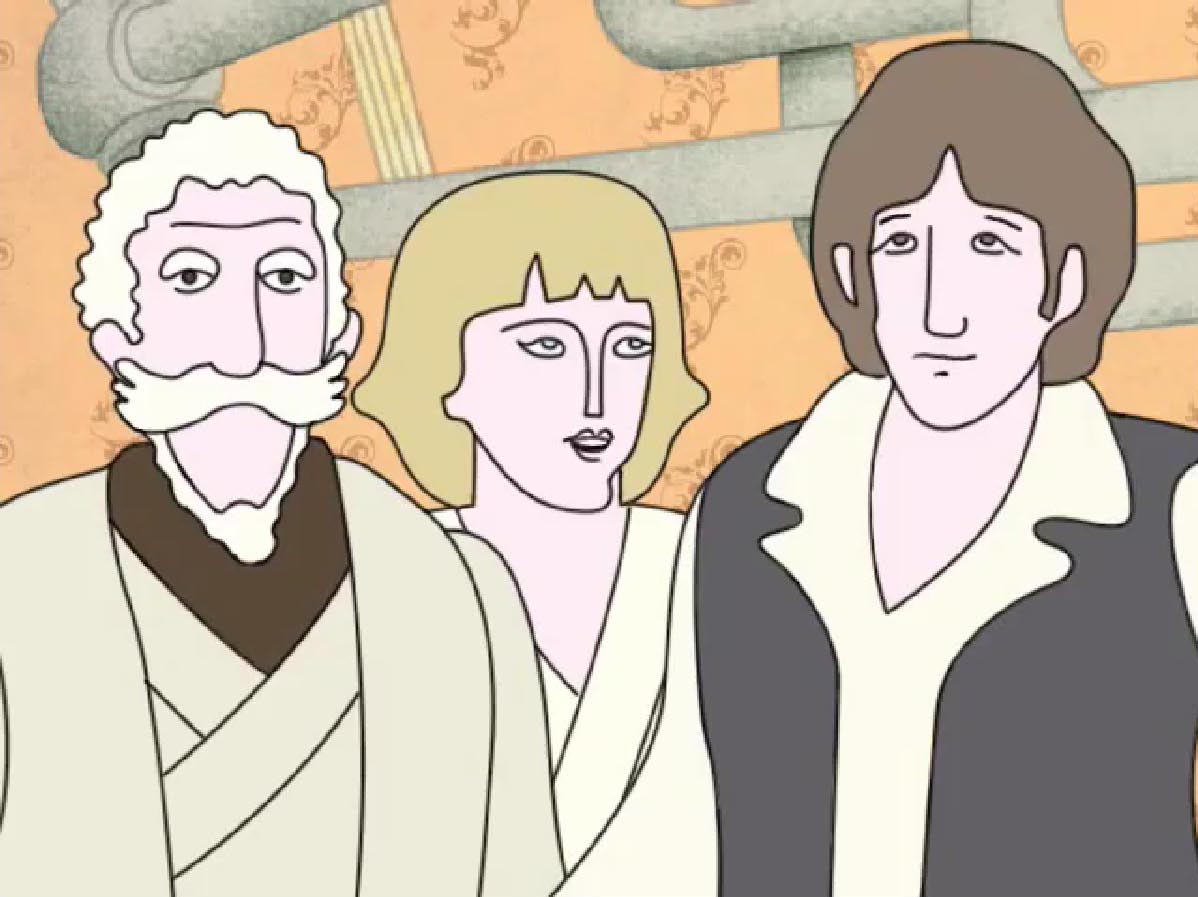
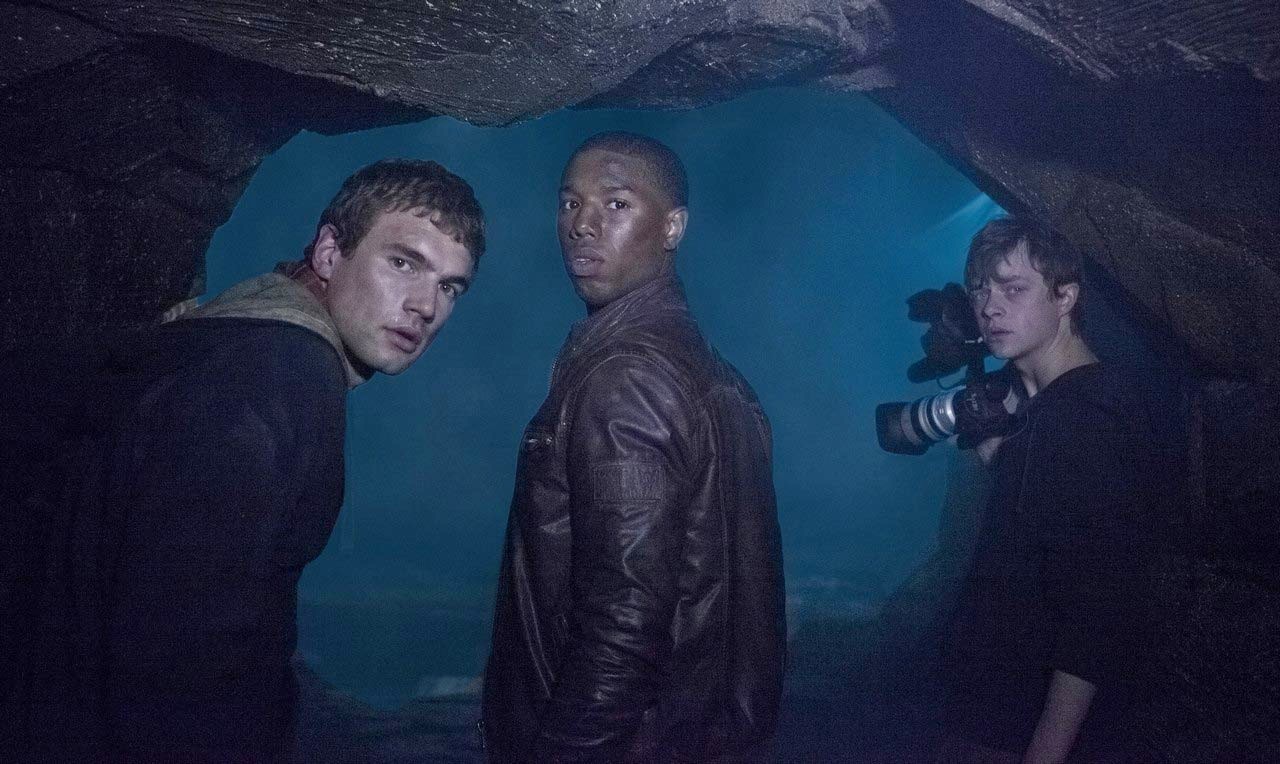
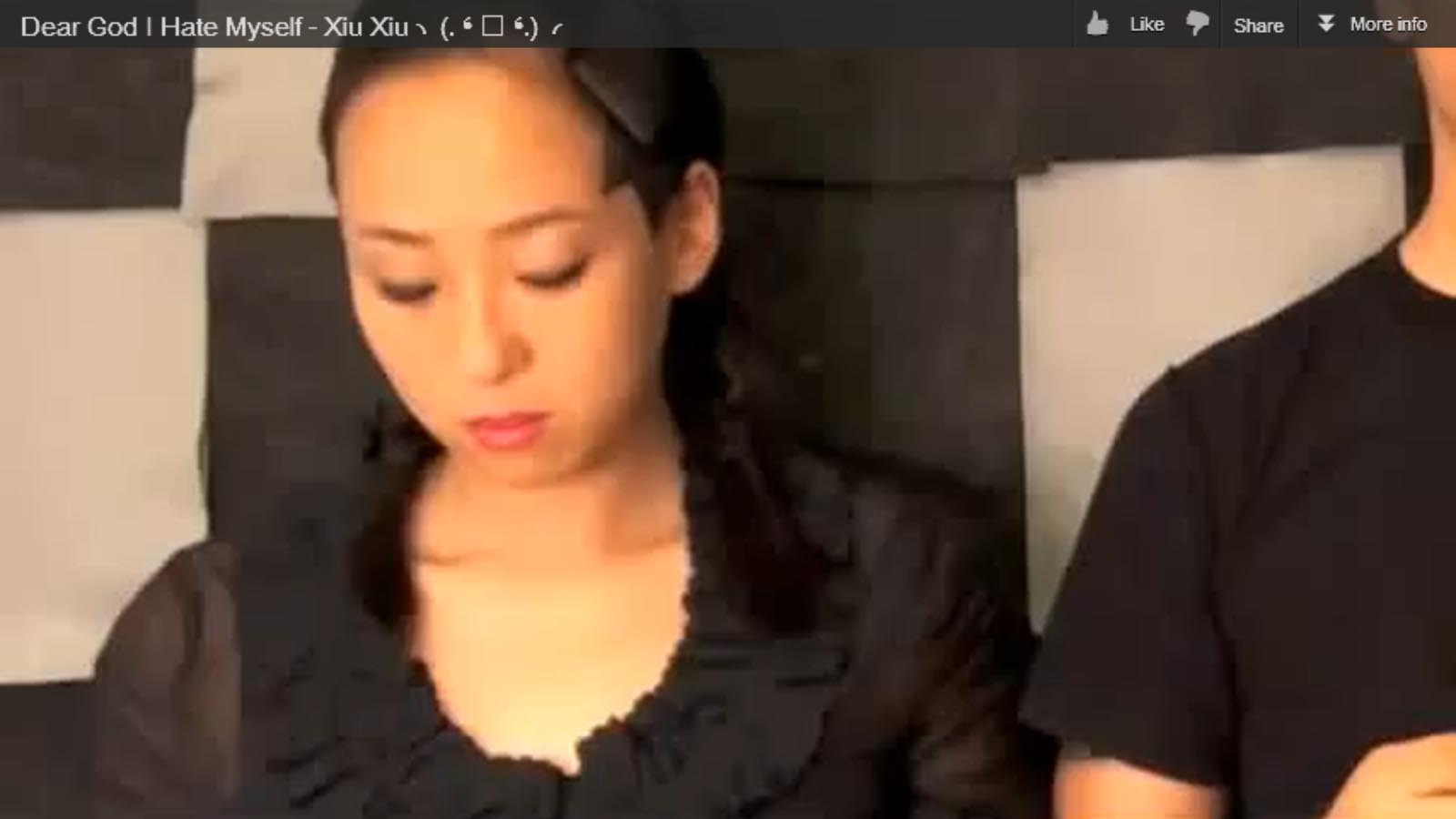

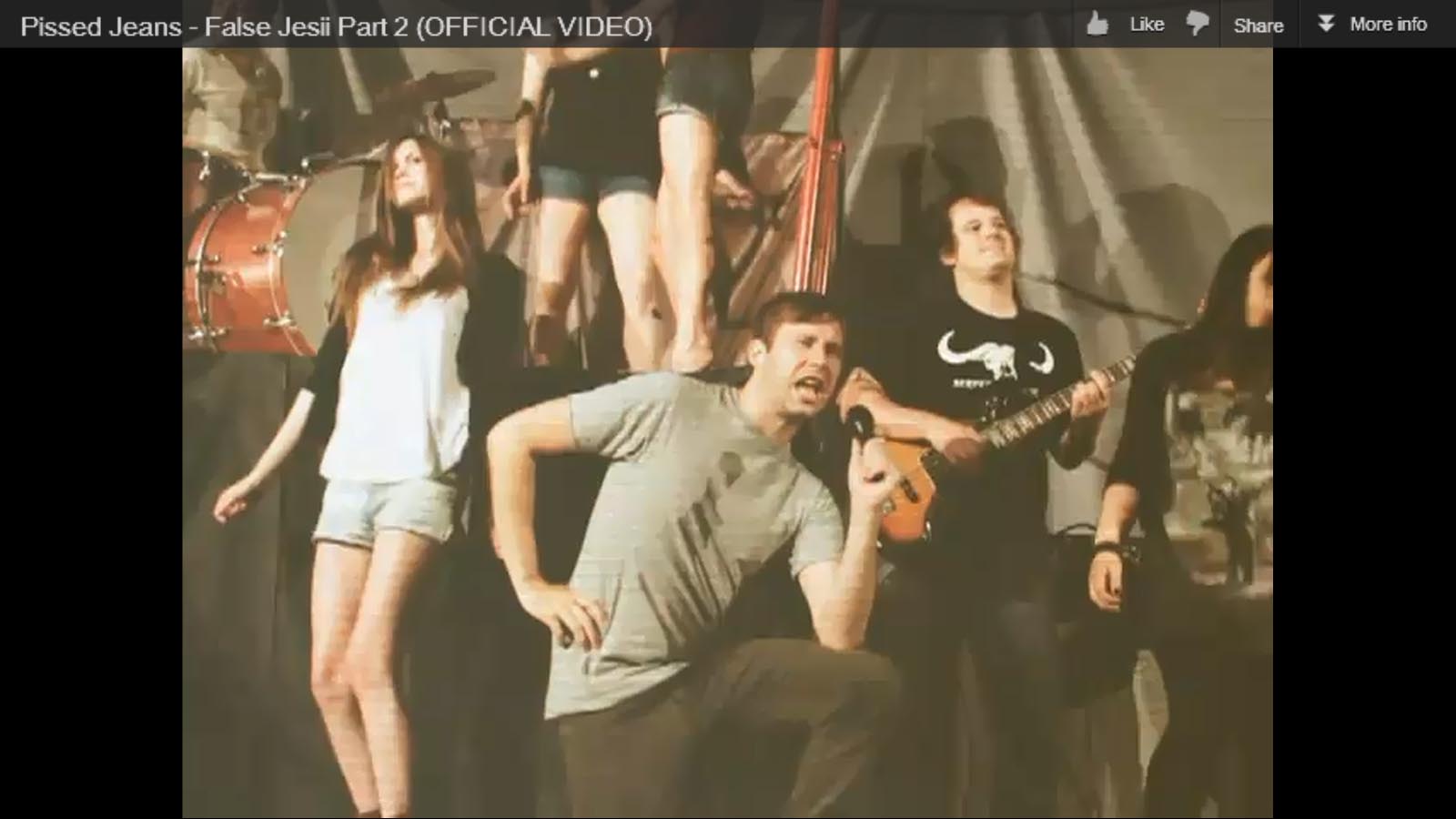 *
*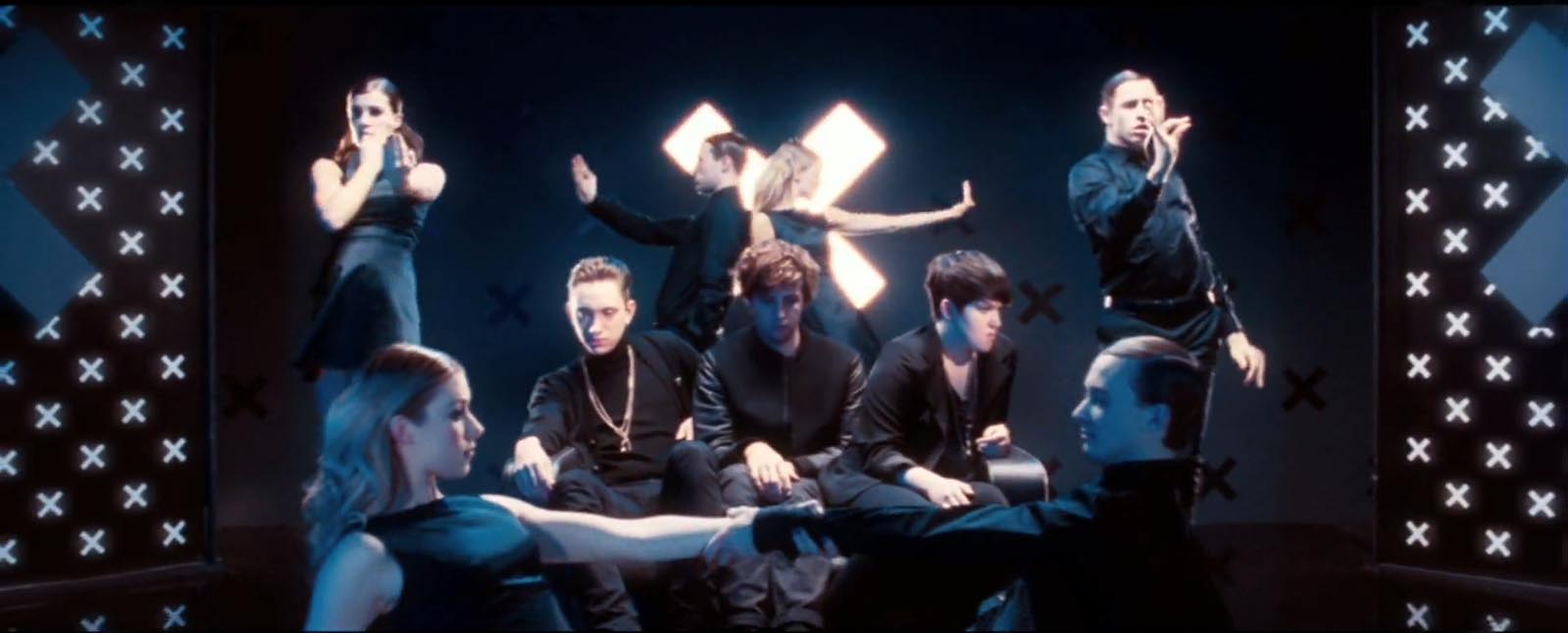
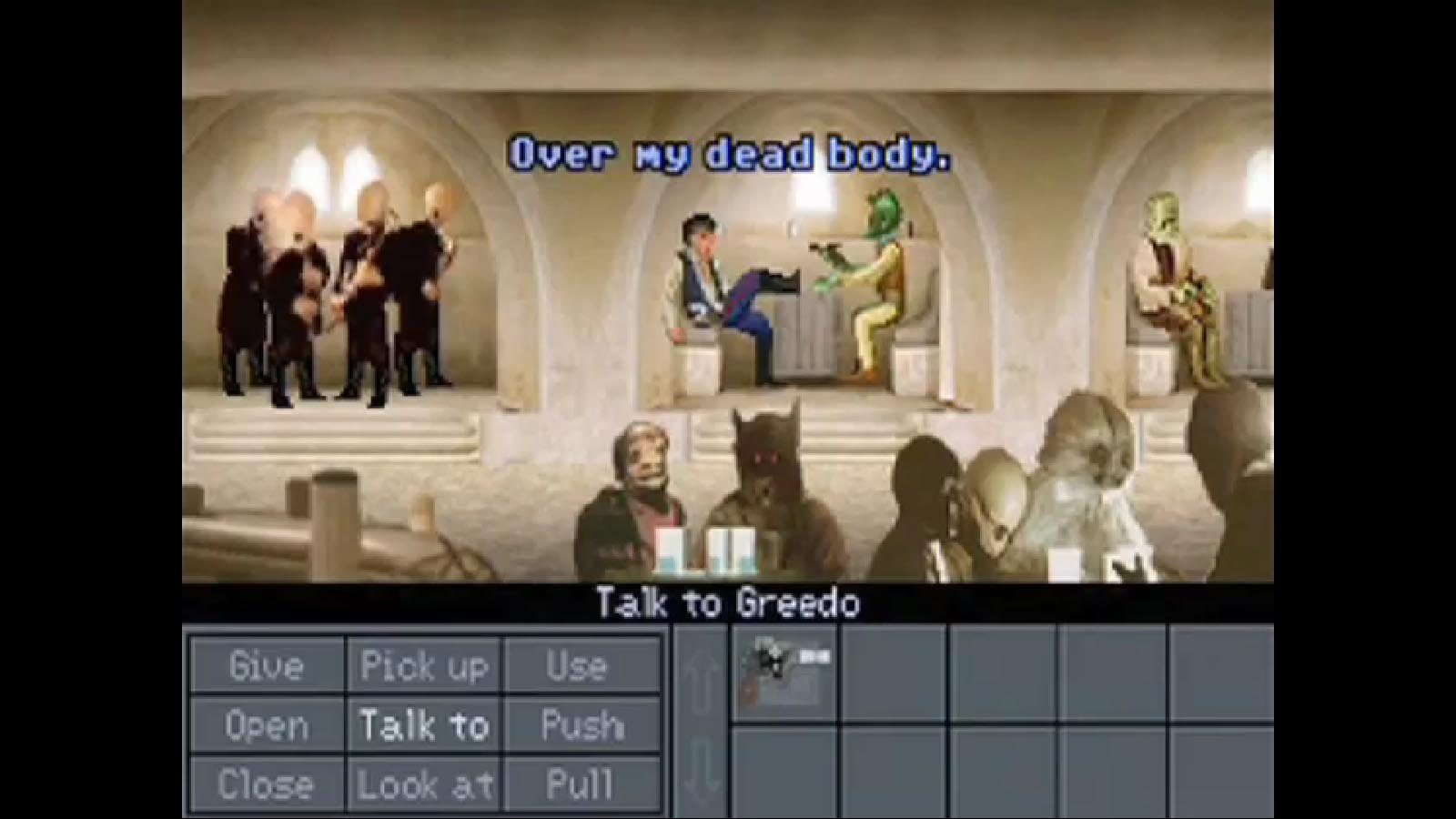

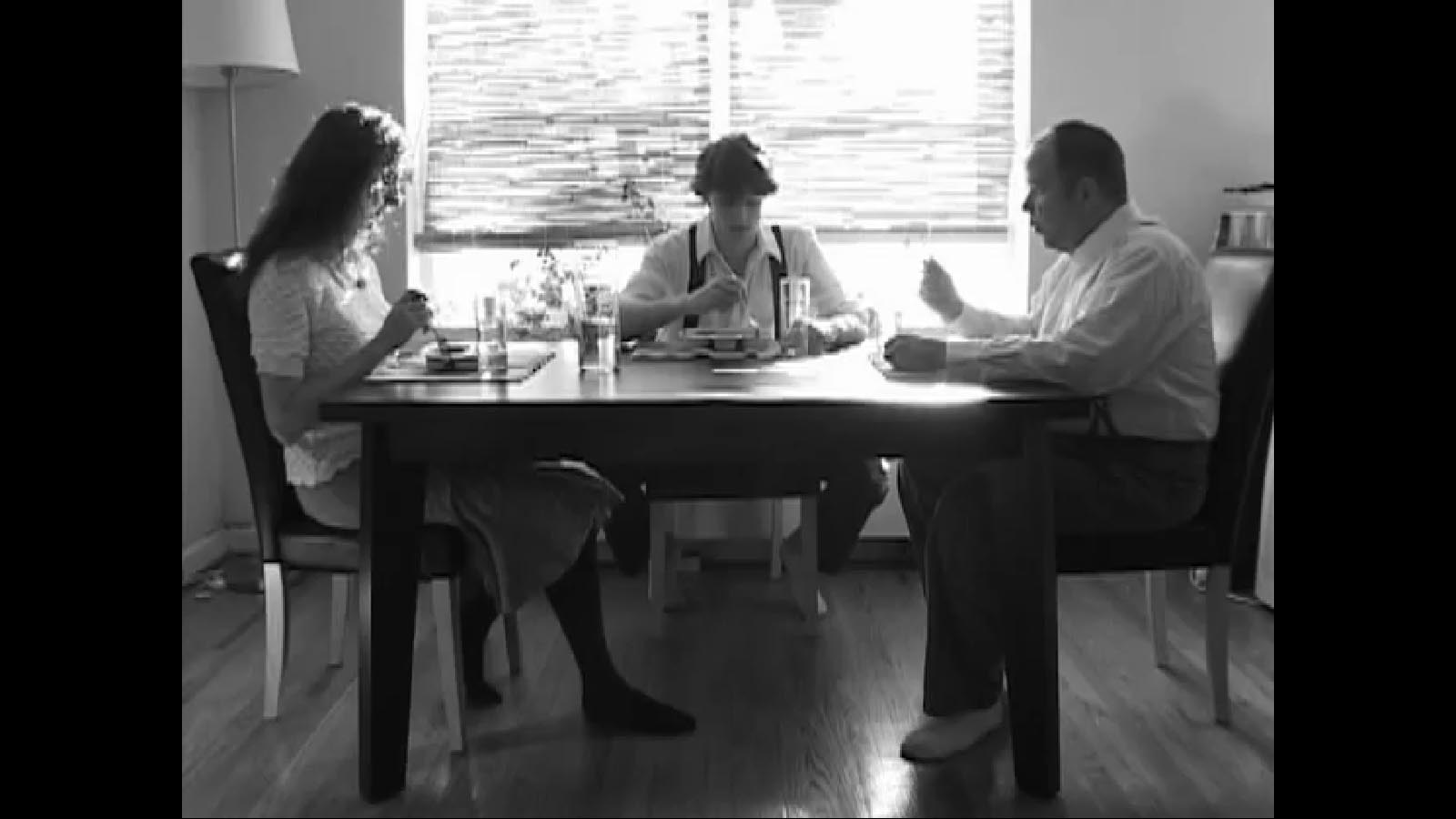

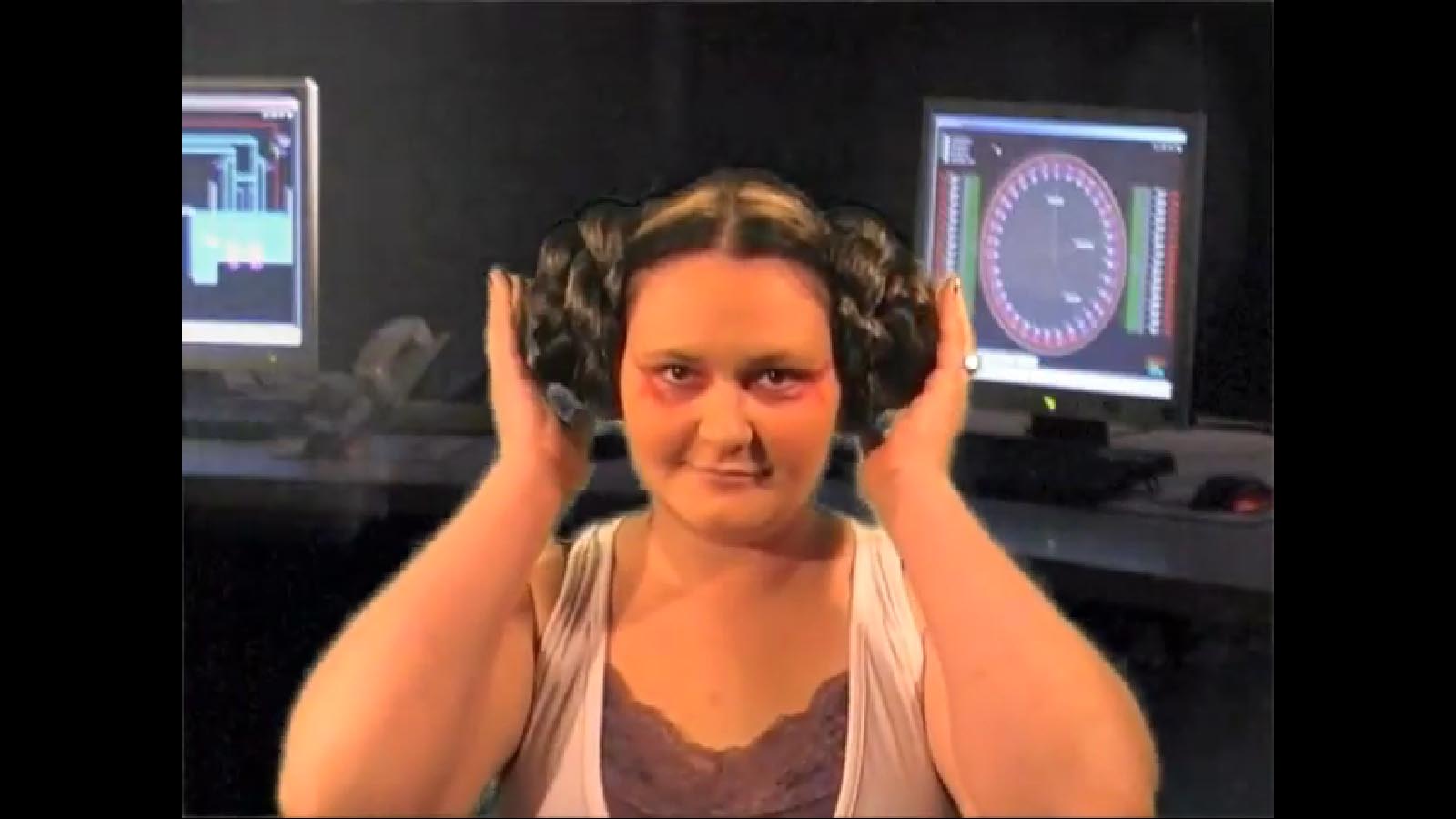
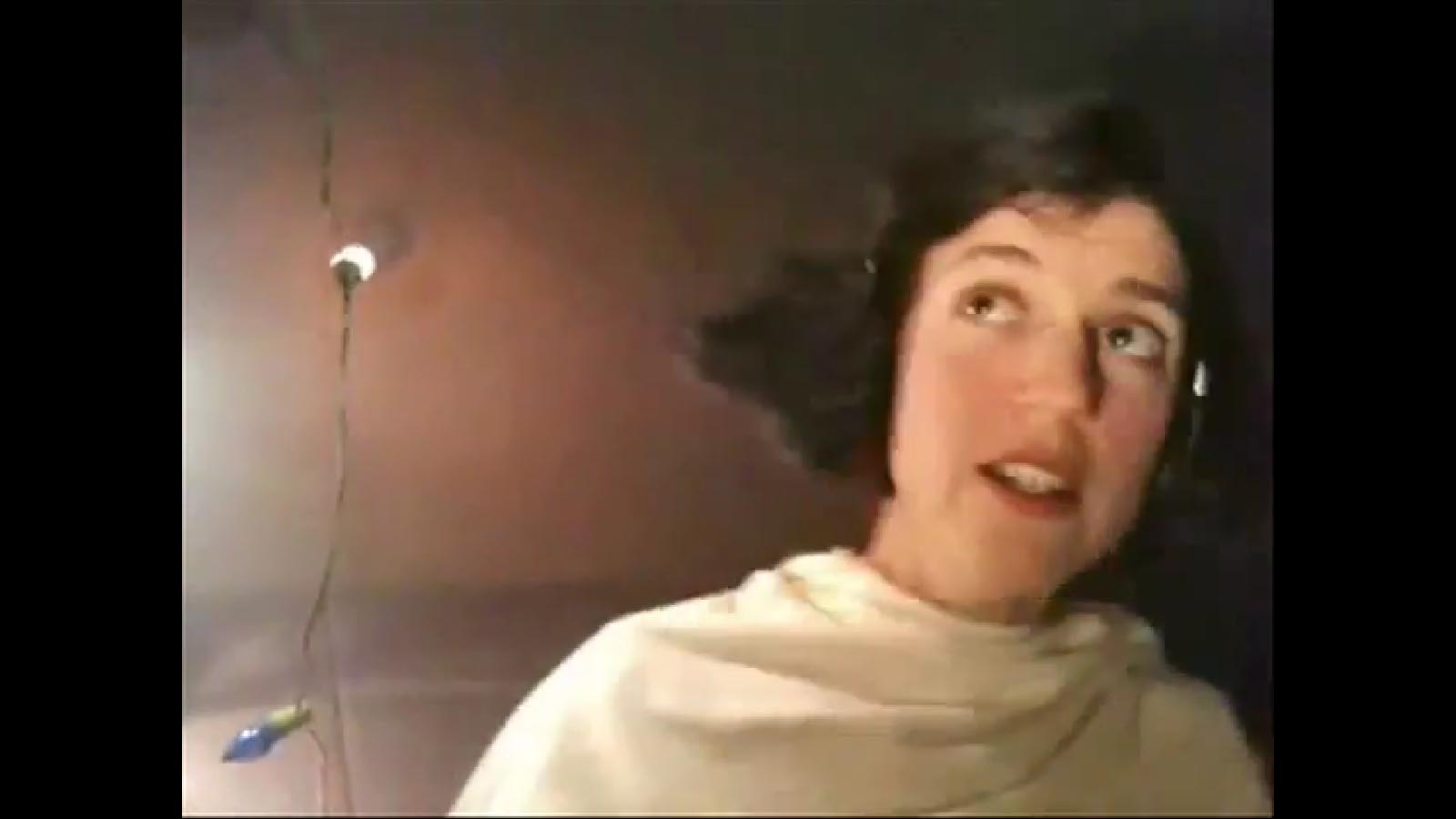
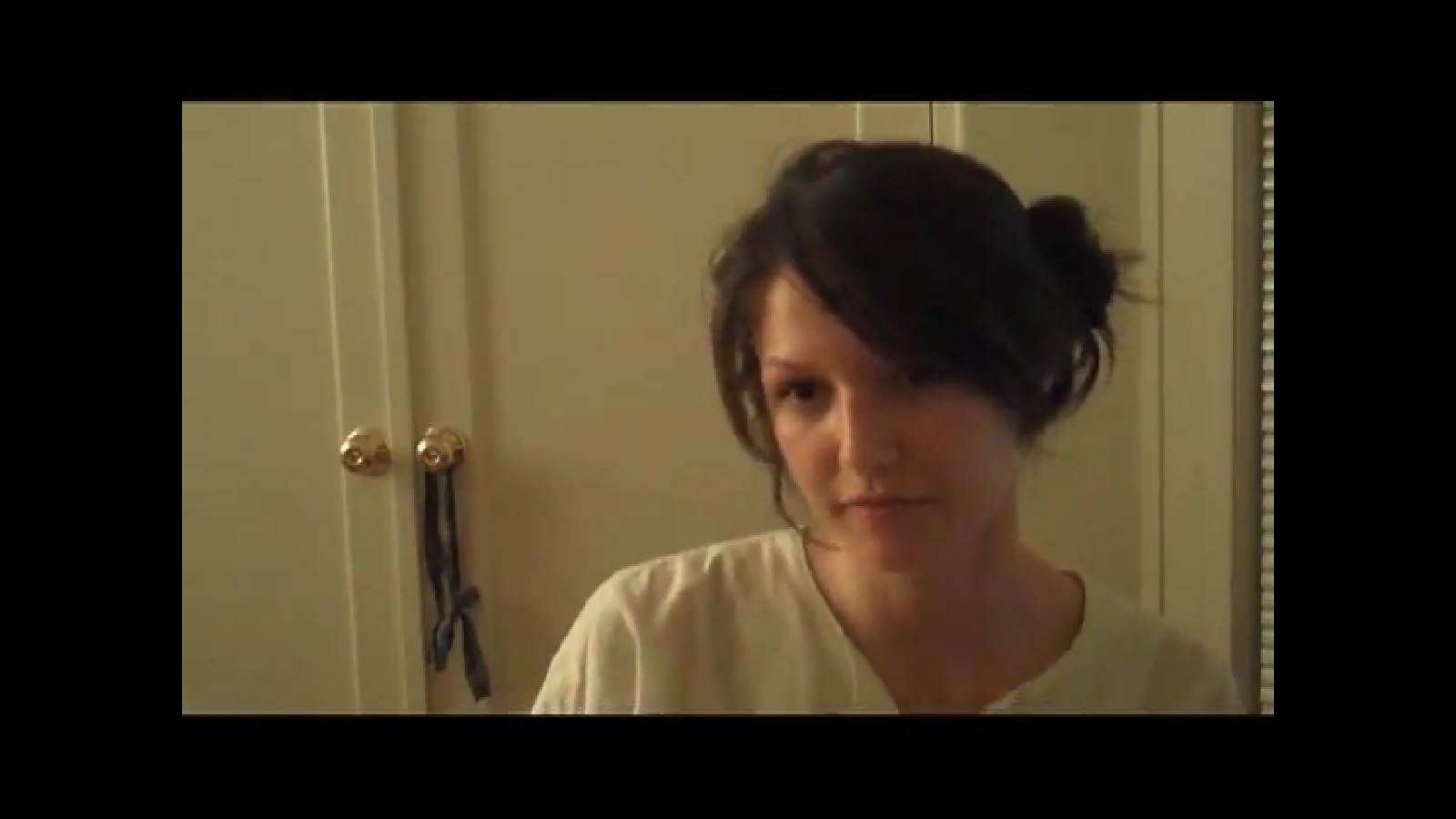
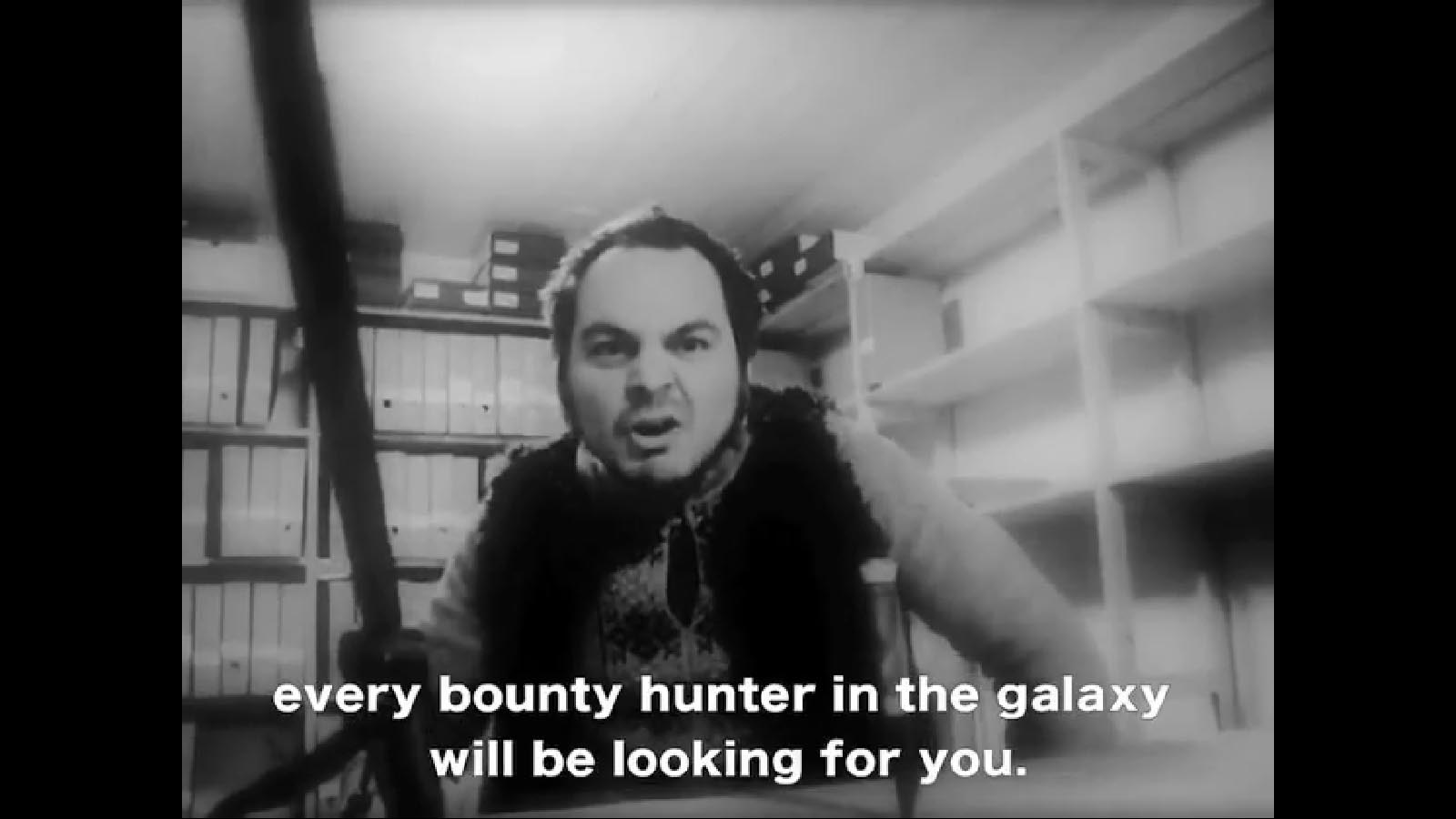


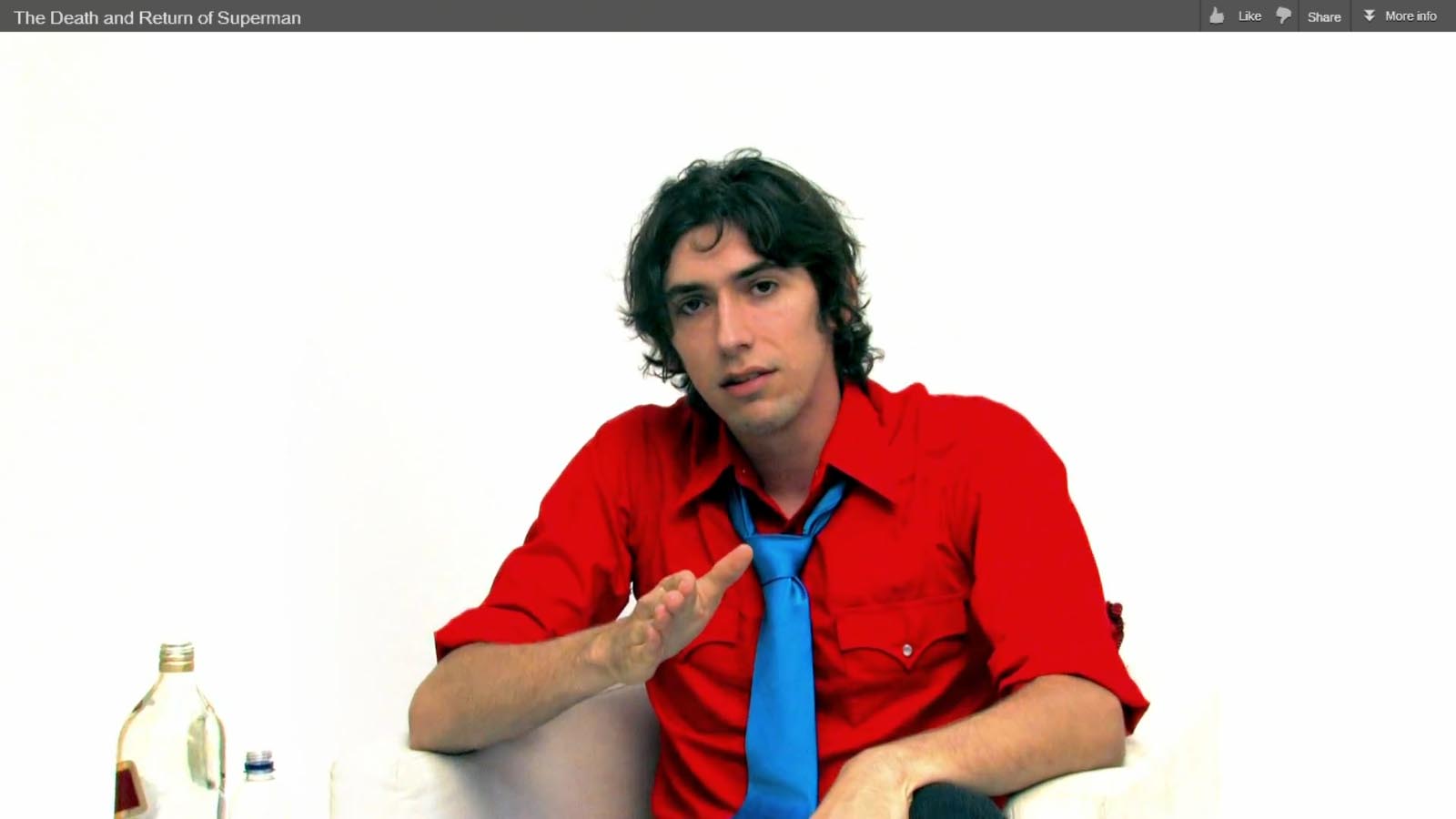
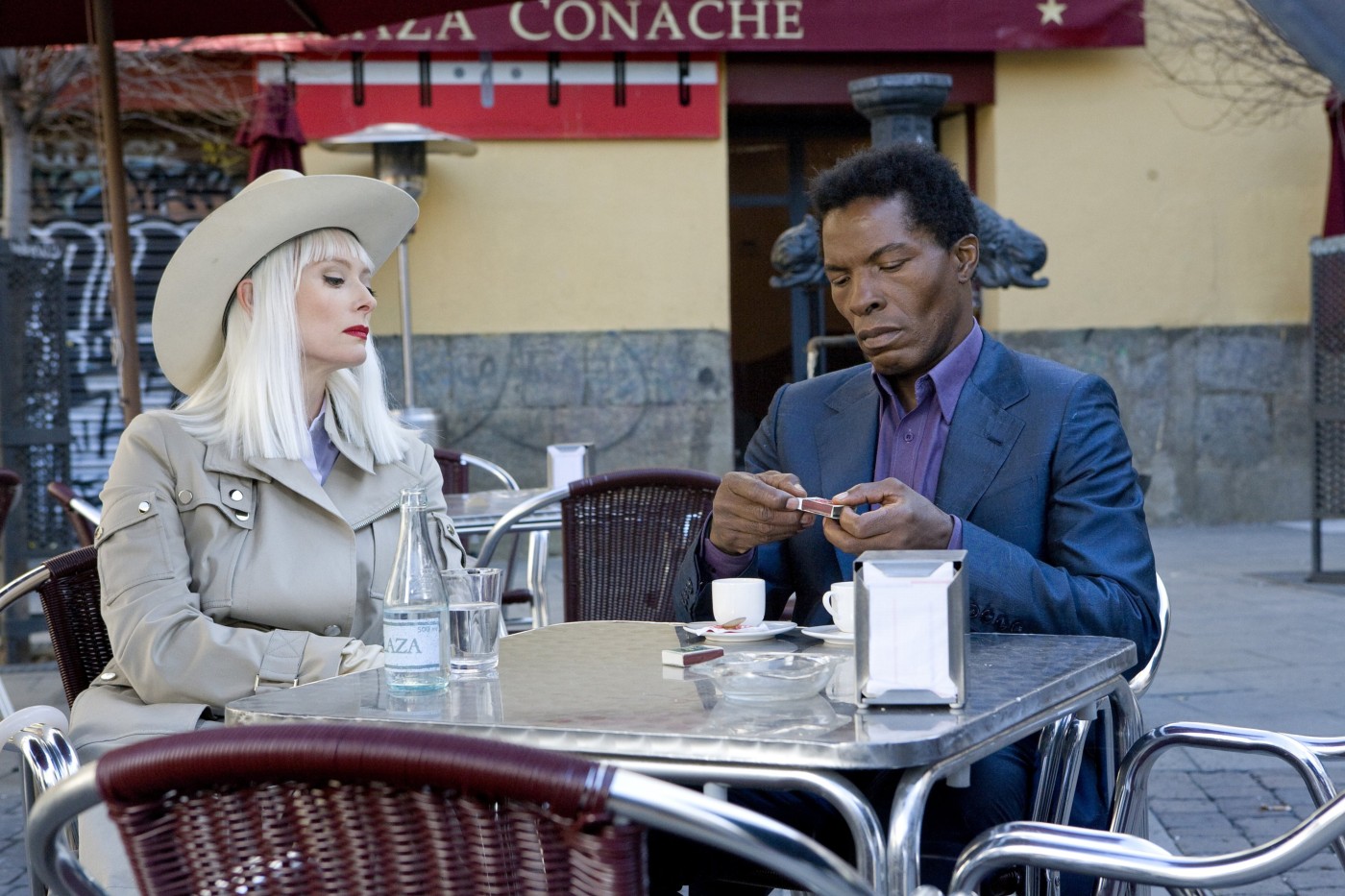
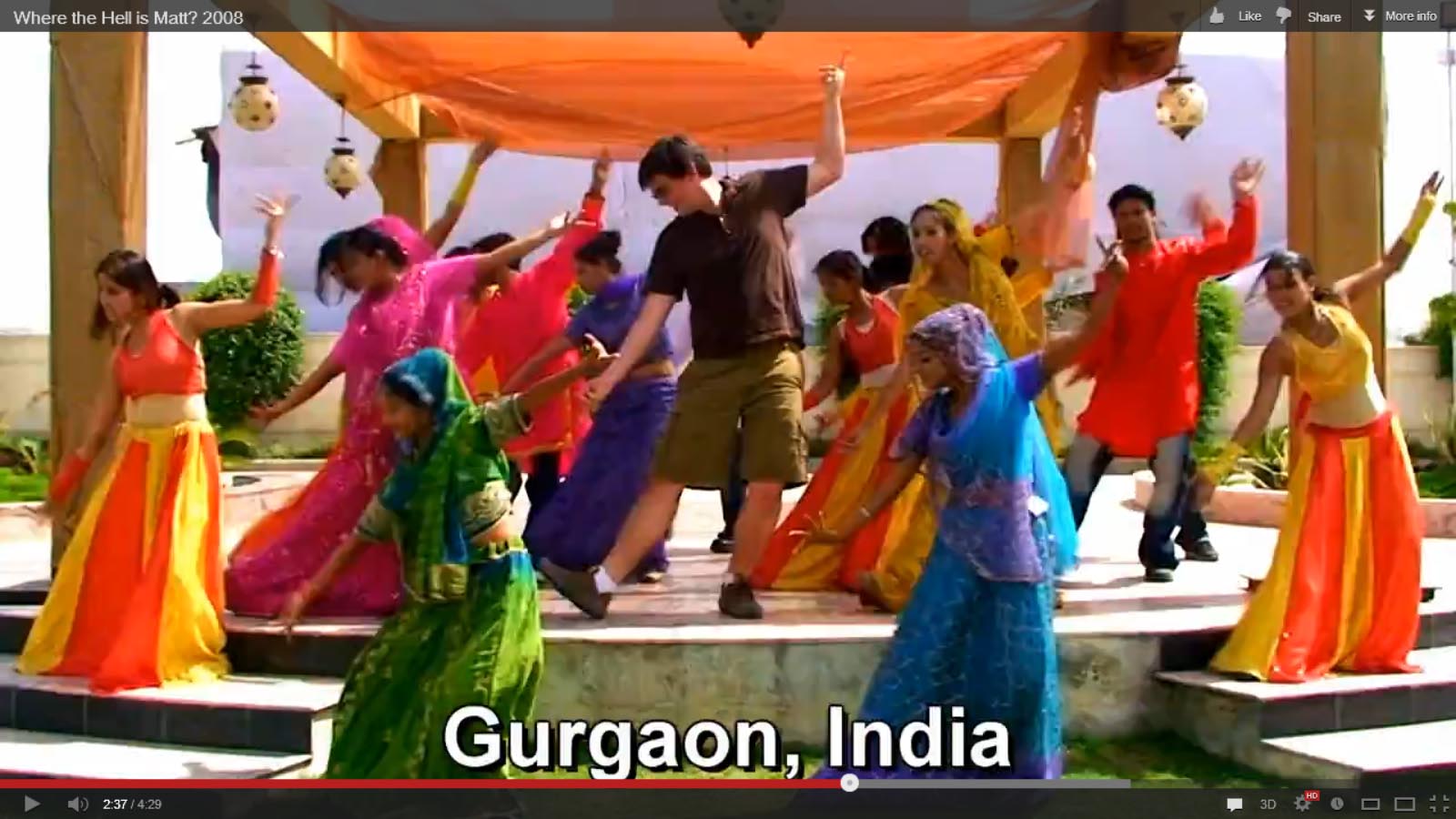 *
*
Great list – lots to dig through here. Thank you!
I enjoyed the first 20 mins or so of Limits of Control. But just because I enjoyed something doesn’t mean I need to see it over and over again, right away.
you should seek out holy motors.
this list is great. the rian johnson/nolan comparison is a good one. also a rocketeer reference! i love that film. particularly dalton’s: ‘it wasn’t lies, jenny. it was acting.’
Really great list. I have a few more things to put on my “to watch” queue now.
I wonder how one could check out the Spaced documentary in the US? I
watched all the episodes on netflix a few months back (twice, actually).
I see it’s included as part of the “Definitive Collector’s Edition” set on amazon.co.uk, but that’ll be on region 2 DVDs.
Ah, nevermind. I see that it’s on the US DVD set as well.
It played Chicago twice last year. The first time was over Thanksgiving, and the second time was over Xmas. I was out of town both times. But I plan to check it out on video, or if it comes back to town. … I’m also planning to see Django Unchained, but those plans keep falling through. I’ll address them on my next list!
Ah, but you see, it’s different each time it happens! I actually really liked that aspect of the film (but I also really like repetition/variation in art). The repetitions expose the variations.
Re: Looper
Why did Old Joe even need to be hunting other kids, Terminator-style,
and why did one of those kids (dear lord) have to turn out to belong to
Piper Perabo?
He had to hunt them because he was not sure which kid it was. Because they were divergent timelines, there are similarities, but differences. The connection is explained in last answer below…
Why did Old Joe have to single-handedly slaughter dozens
of bad guys in a hallway, Matrix-style?
No fucking clue. I thought that was dumb. And very underplayed. It should’ve been more awesome. It was lackluster.
Why didn’t Young Joe just talk to Old Joe at the end?
This was established during the earlier talking scenes, and reinforced throughout their interactions. Old Joe wanted nothing except to save his love. Young Joe couldn’t give a fuck what Old Joe wanted, because Old Joe “is just some old guy”. This was heavily established.
Even better—when Young Joe realized what he realized in the film’s final minutes, why didn’t Old Joe also realize it as well? They were the same person, after all…
Well, I believe this has to do with the idea of quantum entanglement and divergent timelines. The idea that even though they were the same person, they existed in different timelines and therefore dimensionally; they are connected at the subatomic level (meaning the ability to share memories), but divergent because each shares its own properties (read memories) from their perspective timelines/dimensions. This is why it takes time for the memories to encroach upon the other version —- space/time and how it travels across. When actions occur, it has to travel (I believe, to get out of the movie a little bit, via dark matter transmission) — it is not instantaneous transmission.
*But they were able to physically cut off body parts and it happened immediately — yeah, this is why I think Rian didnt do a time travel movie right. Which is why I am writing one, but anyway —
Another explanation could be that Old Joe did know, and thought he’d have enough time to kill them before Young Joe killed himself, giving his Old Self a chance. Who knows… because Rian made an awesomely dumb movie, in my opinion.
Hey Michael,
I didn’t say that well up above. I understood the plot logic, but I didn’t understand why that subplot even had to be in the film. Why couldn’t Willis just know that Cid was going to grow up to be the Rainmaker, and go straight out to the farm to whack him? Why introduce the delay of having there be two other kids? Because it struck me as very hokey delaying device. Of course the guy’s going to go after the wrong two kids first.
All of the Old Joe stuff seemed like a distraction to me. Every time we cut away to him, I was like, why are we going here? It all seemed like padding to me. You could cut all of it out, and I think you’d have a better movie, honestly. (A movie about Young Joe.)
I’m sure there’s some way to explain why Old Joe suddenly didn’t know something that Young Joe knew, but it struck me as lazy filmmaking. I mean, I figured out an hour in that Cid was the Rainmaker, and that it was Willis trying to kill him that would provoke that. It’s sad the other characters couldn’t see that. Even with Young Joe, it took him forever to realize Cid was the Rainmaker. Which was immediately obvious to anyone. Anyway, I thought that at the end, Johnson took what was until then a somewhat personal tale about thoughtful characters, and had them behave like idiots so he could have giant action scenes, and that ridiculous ending. Which was a disappointing place for the material before that to end up.
Beyond that, the film was constantly playing fast and loose with what time travel entailed, because I think Johnson was more interested in effect than in any real logic. Which worked fine, I think, as long as the effect was good. Seeing the old looper fall apart as the younger version of his self was dismembered—it makes no sense, plotwise (how does the young guy grow up now to come back in time and escape, prompting that whole bit?), but it was a great scenario. Terrifying and visceral. It was neat filmmaking.
Never mind the fact that if an old looper ever gets away, you just murder the young looper, and snuff the old looper out of existence. Easy-peasy!
I can see what so many people liked in the film, but I really did find it overstuffed, and not all that coherent. My impression is that Johnson wanted to make like three different films. One was a personal story about Young Joe, and his becoming moral. Another was a neat time travel movie with nightmarish noirish scenarios. The third was a cool action movie with gun battles and murdered children and telekinetic battles. And maybe there’s some good way of combining those movies, but I don’t think Johnson found it. Instead, he just crammed them all together.
Good luck with your own time travel movie!
Cheers,
Adam
I went to see Dredd on the strength of the screenwriter Alex Garland, who’s had some amazing collaborations with Danny Boyle in the past (and who also wrote the Never Let Me Go adaptation, which I haven’t got round to seeing yet). I came out of it though with similar feelings to you, in particular a bad taste from the unironicness of any of its politics. But besides all that, I also felt it wasn’t the great action movie most of its supporters claim it to be, especially because I’d seen The Raid a few weeks earlier, which does the same set-up with much more panache and invention (although it does run out of steam towards the end). One bit I remember from Dredd’s action sequences which deeply frustrated me was the part when the other Judges came looking to kill him and, because of their helmets, it was entirely impossible to tell which one was Dredd, a problem not helped by all the fast-cutting during the big gunfight they have. I don’t understand why they didn’t just have them wear different colours or something…
Agreed, most fun I’ve had at the cinema in years.
“Washington” may be his best (it is one of his most
I haven’t seen The Raid, which is perhaps a better film, but I think Dredd, despite its problems, remains mostly a compelling movie, albeit a shallow one. But that said, it didn’t strike me as being as good as the movies it went about referencing—the works of John Carpenter / Walter Hill / possibly John Milius / possibly Paul Verhoeven. So while I appreciate its spirit, and how anachronistic it looks in 2012/3, I think it’s ultimately a lesser effort. Which is to say that it doesn’t succeed the way Drive did, where Nicolas Winding Refn managed to make (I’d argue) a film as good as the movies he was referencing—works by Walter Hill and Monte Hellman and William Friedkin and (later) Lem Dobbs and Steven Soderbergh.
There did seem to be other pleasures at his website. I’ll check out the Professor Brothers—I don’t know if I watched those… I think ultimately I don’t have much patience, though, for the man’s work, despite his obvious talents. But George Washington is some kind of perfect thing.
You seem like a smart guy
Yay to Dredd! Boooo to Looper!
I remember watching that 2008 Where the Hell is Matt several times in 2008. that shot of the whale is awesome.
[…] 2012 […]